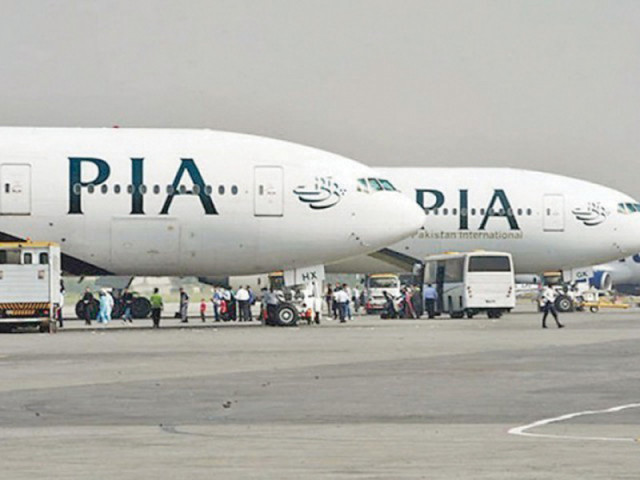Clearance: PIA resumes cargo shipment to EU
Ban lifted after satisfactory inspection of national carrier.

PIA’s cargo shipments were barred in Europe since July 28 because of delays in a validation from experts who stamp ‘compliance to security protocols’ on part of the airline.
Temporary suspension of PIA’s cargo service came on heels of a deadly attack at the Karachi airport, raising concerns over aviation security.
The airline found itself caught up in the tough regulation called Air Cargo or Mail Carrier operating into the Union from a Third Country (ACC3) that required carriers to take certain security screening measures by July 31, 2014.
ACC3 regulation became mandatory, after October 2010, when an attempt to carry explosives hidden in a printer cartridge was made from a Middle Eastern state.
According to the regulation, countries have been divided in three separate categories. The Green category includes countries that do not need validation, The White category includes most of the countries that require validation, but Pakistan has been placed in the high risk Red category, among countries under stringent watch.
The airline had spent months putting in place relevant systems and procedures to comply with tough European Union conditions, officials said.
In line with the regulation, PIA installed dual view scanners, explosive trace detectors (ETDs) and deployed dogs trained in identifying explosives. The two-step validation is done by IATA approved Independent Validators. A pre-validation inspection has already cleared PIA to run cargo service to EU.
The validation is acceptable for 10 years. But authorities have increased security in recent weeks by deploying trained and well-equipped guards around all international airports and enhancing the screening of vehicles, passengers and their attendants.
PIA is the only Pakistani airline operating cargo service to Europe.
Published in The Express Tribune, August 29th, 2014.
Like Business on Facebook, follow @TribuneBiz on Twitter to stay informed and join in the conversation.


















COMMENTS
Comments are moderated and generally will be posted if they are on-topic and not abusive.
For more information, please see our Comments FAQ